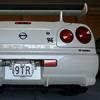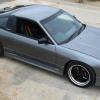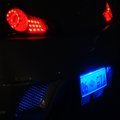Got Car Tuned - Was All Good But Now Its Making A Horrible Noise
Announcements
-
Similar Content
-
Latest Posts
-
By Murray_Calavera · Posted
@silviaz Are you skim coating the entire panel (covering the entire panel with filler) before your hitting it with the long block? Or are you selectively applying filler to the repair, trying to fill the low points? Please don't do that. Almost certainly. Are you checking the panel for flatness as you go? Or is it more a case of, sand til all the guide coat is gone then check? -
On the V36 you swap out the whole unit and get a large vertical screen, a unit that just does the screen at the top, or you can swap out and get a replacement Aus unit to replace the Jap one (no car play/andriod auto) still keeping the Jap buttons. The cameras can be upgraded to one rear HD cam but you loss all others. Its a dumb system that puts all feeds into one input for video, and these upgraded units only seem to have one video input in them too.
-
See, I find that hilarious, as I've seen them do so much stupid things (BMW and Merc) with electric faults. Yet the C63 race car has half the modules pulled out, a bunch of fuses and wiring cut, and, it just runs happily! We can even pull the ABS module or fuse, and it's totally happy!
-
By Dose Pipe Sutututu · Posted
Going to guess it's one of the hoses under the plenum, which is not fun OR the one at the end of the block, near the starter, which has a spaghetti of hoses off it. It likes to split and is a true cnut to get to. Scope will reveal all!
-








Recommended Posts
Create an account or sign in to comment
You need to be a member in order to leave a comment
Create an account
Sign up for a new account in our community. It's easy!
Register a new accountSign in
Already have an account? Sign in here.
Sign In Now